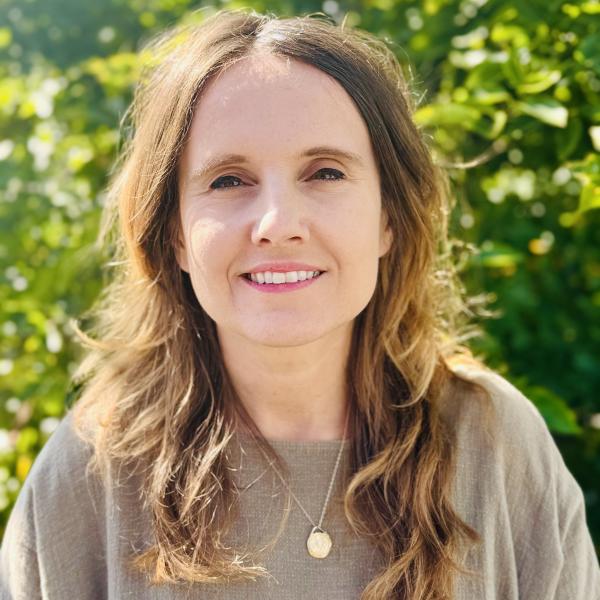Biography
Assistant Instructional Professor, Master of Arts Program in the Humanities, Department of English Language and Literature, The College
Affiliate Faculty, Center for the Study of Gender and Sexuality, Center for the Study of Race, Politics, and Culture
I received my Ph.D. from the Committee on Social Thought at the University of Chicago in 2018, and I’ve been working as a preceptor at MAPH since 2014. Before that, I earned a B.A. in philosophy and history from the University of California, Berkeley. My teaching and research center on American literature and culture from the late nineteenth century to the present, with an emphasis on histories of gender and sexuality as they intersect with race and class. I’m particularly interested in women’s cultural production and feminist political struggle around biological and social reproduction, motherhood and the politics of the home and family, and domestic and sexual labor. I am invested in analyzing U.S. cultures of reproduction in relation to biopolitical modes of regulating citizenship and national belonging—histories of eugenics and sterilization, slavery and racial segregation, immigration quotas and exclusion, settler colonialism and federal Indian policy. I also teach courses on queer and trans theoretical, literary, and cinematic explorations of history and temporality, affect, intimacy, trauma, and political struggles around sexuality. I focus in particular on how queer and trans theory and cultural production contest heteronormative imperatives around maturity, generation, marriage, and progress, insofar as they dictate what counts as a good life, a future worth having, or a history worth remembering. Finally, my research and teaching interests include the history of science, technology, and medicine as centered on the gendered and sexed body, particularly sexology and its afterlives, as well as histories of trans medicine, assisted reproductive technology, and birth control. I am a proud member of Faculty Forward/SEIU Local 73, the contingent faculty union at the University of Chicago.
Current MAPH Courses
In a Queer Time and Place (Winter 2026)
(ENGL 27716/47716) Crosslistings GNSE 23179, GNSE 40450
In this class, we orient ourselves around the so-called “temporal turn” in queer and trans studies, which has produced some of the most exciting and influential queer theory of the last twenty years. We investigate queer theory’s bold interventions into the political and ideological workings of temporality alongside important works of queer and trans literature and film spanning the 1990s to the present. Our texts collectively interrogate the assumed naturalness of straight time and question the ways that heteronormative imperatives around things like maturity, generation, marriage, and progress dictate what counts as a good life, a future worth having, or a history worth remembering. Together we chart queer modes of engagement with history, the archive, the temporality of gender and sex performance, the pace and rhythm of human development, and the times and spaces of sex and intimacy. This class offers students a graduate-level introduction to queer theory and a good starting point for academic inquiry into c20-21 queer and trans literature and cinema. Theorists include Berlant, Cvetkovich, Edelman, Freeman, Halberstam, Keeling, Muñoz, and others; fiction and film by Jean Carlomusto, Samuel Delany, Cheryl Dunye, Isaac Julien, Torrey Peters, Justin Torres, Virginia Woolf, and others. (Theory 20th/21st)
Instructor consent only. Open to graduate students and 3rd-/4th-year undergraduates with majors in the humanities. Prerequisites: Open enrollment for all graduate students, as well as 3rd- and 4th-year undergraduate students with majors in the Humanities and Social Sciences. All others, please email amalinowska@uchicago.edu to request permission to enroll.
“Unnatural” Mothers: Reproduction on the Margins (Spring 2026)
(ENGL 27718/47718) Crosslistings: MAPH 47718
In this class, we focus on literature, film, and theory that treat the entanglement of reproductive embodiment with gendered divisions of labor and political struggle under capitalism. We pay particular attention to stories, ideas, and histories that decenter reproduction from its ostensibly “natural” location under liberal capitalism in the heteronormative nuclear family and the privatized home. Our key protagonists are “bad” moms, “welfare queens,” gestational laborers, queer kin, sex workers, migrants, and women who simply refuse to reproduce. We consider their stories alongside legal and political histories—like eugenics, chattel slavery, neoliberal globalization, and the pro-life movement— that condition oppressive reproductive structures and set the stage for feminist struggles to reproduce otherwise. Our inquiry into “reproduction on the margins” will help us to analyze the “private” or intimate terrain of family, pregnancy, motherhood, sexuality, and gender itself as sites of labor crisis, struggle, and possible liberation. Literature and film may include works by Lizzie Borden, Elena Ferrante, Amy Heckerling, Gayl Jones, Maggie Nelson, Marge Piercy, and others. Theory readings may include Lauren Berlant, Mariarosa Dalla Costa, Saidiya Hartman, Sophie Lewis, M. Murphy, Sharmila Rudrappa, Dorothy Roberts, Iris Marion Young, and others. (Theory, Fiction, 20th/21st)

